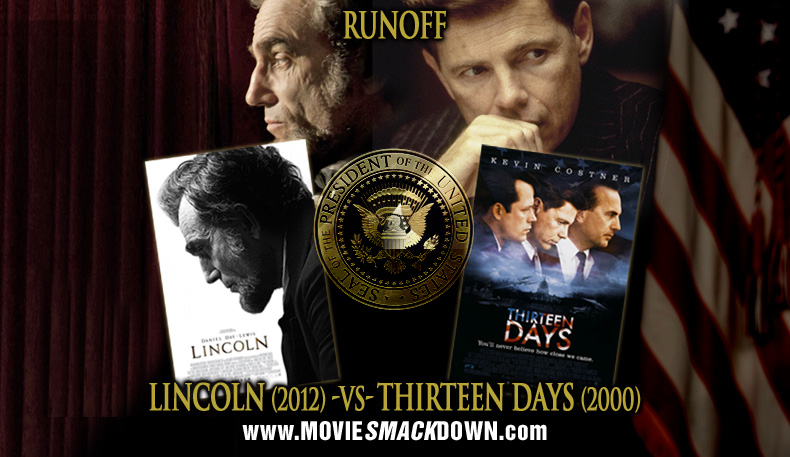
The Smackdown
You’ve heard about all the Kennedy/Lincoln coincidences by now. Some of them are even true. But did you know that Kennedy and Lincoln both have had movies made about pivotal moments in their presidencies? Yeah, I guess you probably did know that. The long list of movie Lincolns includes such notable stars as Henry Fonda, Walter Huston and now, in Steven Spielberg’s new film, Lincoln, Daniel Day-Lewis, while Kennedy has been assayed by, among others, Cliff Robertson, James Franciscus and Bruce Greenwood, who played our youngest President in the true-to-life political thriller, Thirteen Days.
But did you know that I just happened to watch both Lincoln and Thirteen Days in the same week?
Hmm… okay, I guess you probably could’ve surmised that. But did you know that Thirteen Days (2000) had a man named Lincoln as a key grip, and Lincoln had a key grip named Kennedy? Of course you didn’t, because it’s obscure movie trivia that I just made up, but the point is, what more appropriate time than Election Day week to have two of our most beloved, respected Presidents go head-to-head in the Smackdown ring? Have at it, POTUSes!
The Challenger
It’s 1865, America is bitterly divided, and the country’s two halves are at each other’s throats. I know, that probably sounds like an utterly foreign concept in this day and age, but it really did happen; it was called the Civil War, and it was largely over some very complicated issues that are generally boiled down to the term, slavery. So anyway, the war is winding down, and the North, a.k.a. the Good Side, is winning, but distinctly bearded, stovepipe-hatted and recently re-elected President Abraham Lincoln (Day-Lewis — yes, a Brit plays Lincoln. Deal with it) is steadfastly determined to pass a slavery-abolishing Thirteenth Amendment to the Constitution.
This means cajoling, bribing, persuading, corny anecdoting and doing whatever it takes to win over a whole variety of character actors. Fortunately, he has a terrific trio of such actors of his own (John Hawkes, Tim Blake Nelson and James Spader) to lobby, wheel and deal for him, as well as David Strathairn as his faithful Secretary of State William Seward, Sally Field as his unstable but loving wife Mary, Tommy Lee Jones as dour but devoted abolitionist Congressman Thaddeus Stephens, and Joseph Gordon-Levitt, who’s around to play Lincoln’s son Robert because he’s contractually obligated to be in every movie this year. Anyway, it’s a chapter of history that ultimately teaches a very valuable and moving lesson about the dangers of theater-going.
The Defending Champion
October, 1962. The Soviet Union (kids, ask your grandparents) has moved some rather ominous-looking missiles into the uncomfortably close-to-America island of Cuba, and it’s up to the young, devilishly handsome but as yet untested President John F. Kennedy (Greenwood — yes, a Canadian plays JFK. Deal) to make some quick and crucial decisions about how to respond. An overly aggressive reaction could easily lead to nuclear war; an overly passive one leaves the U.S. vulnerable.
What to do? Meetings. Lots and lots of meetings, with the wonky and increasingly edgy cabinet members, with military personnel drooling at the thought of nuking some Commies, and mostly with Kennedy’s Secretary of State/younger brother Bobby (Steven Culp) and his Special Assistant Kenneth O’Donnell, whose bizarrely prominent (and historically inaccurate) role in these powwows is due to his being played by Kevin Costner (kids, ask your parents).
The international confrontation develops into a tense, elaborate game of chicken between Kennedy and the off-screen Soviet leader Nikita Khrushchev, and it takes… well, let’s just round it up to two weeks for everything to get sorted out, but (SPOILER ALERT) the world survives the crisis, Reagan eventually tells Gorbachev to tear down the wall, and Costner goes on to make 3000 Miles to Graceland. Everybody wins.
The Scorecard
Lincoln is one of the season’s most anticipated films, due in part to the prospect of Steven Spielberg directing a respectable historical piece instead of another Indiana Jones sequel, but mostly because Daniel Day-Lewis, quite possibly the greatest actor alive, takes a stab at this iconic American figure. So you’ll all be pleased to hear that Day-Lewis does not disappoint: He looks the part to an uncanny degree, voices it with an easygoing Henry Fonda/Walter Brennan drawl, apparently had his legs lengthened several inches, and quite simply, charms the pants off you from the opening moments. He is a lock for another Oscar nomination, and his standard brilliant work is easily the film’s strongest element.
And then there is Kevin Costner in Thirteen Days.
His O’Donnell is the leading role without being the protagonist, meaning that he has the most screen time but doesn’t actually do much of anything. He’s an adviser, friend and confidant to the two Kennedys, which is all well and good, until you hear the accent.
Yes, Costner takes a shot at the pahk the cah Boston accent that the Kennedys made famous and that has been imitated endlessly, most notably by Mayor Quimby on The Simpsons, but never quite so horribly and infamously as by Costner in this movie. His opening line (“This is nawt your report cahd!”) tells the whole story. I mean… wow. As his character says about one of Bobby’s weaker ideas, “It’s that f—ing bad!”
Fortunately, the movie around him is good enough to not be destroyed by it. Greenwood, a superb and underrated Canadian actor, currently in fine form in Flight, wisely chooses to not even attempt an imitation of the accent or even the reedy voice of JFK (Greenwood’s is significantly lower and deeper), focusing instead on his calm dignity, steely resolve and magnetic charm, which he nails effortlessly. Only the lesser-known Culp as Bobby delivers both a convincing performance and a credible imitation of his real-life counterpart. And even Costner’s performance is otherwise fine, but good God, that accent…
Lincoln suffers no such indignities and is generously populated with familiar faces and fine performances, particularly from Jones as an abolitionist with a very personal emotional stake in the matter. But as good as Day-Lewis is, the movie is neither the one-man show nor the sweeping Spielbergian epic that audiences might be expecting. It focuses very strictly on chronicling this specific episode with as much accuracy and few frills as possible, making it destined to be, at the very least, an instant go-to for 8th grade Constitution teachers.
Most of the film is set indoors, with dark hues, minimal scoring and lots of talk, sometimes too much talk, as in its hokey opening minutes, when two fanboy soldiers eagerly recite the Gettysburg Address back at an amused Lincoln. It frequently feels like a play based on a history book, which makes sense, as the adaptation is by award-winning playwright Tony (Angels in America) Kushner, adapted “in part” from Doris Kearns Goodwin’s recent Lincoln bio. It has little to no interest in battle scenes, back story, or even the assassination of its protagonist, which happens completely off-screen, with no explanation. (Kinda weird.)
So basically, it’s like watching a live-action, feature-length, non-musical, Schoolhouse Rock segment about how the Thirteenth Amendment was passed. History buffs and Day-Lewis fans will be riveted, but I’m not entirely sure who else will find it more than a well-made diversion. It’s an oddly understated choice for the usually bombastic Spielberg, and while it ranks nowhere near his best work, it’s arguably his best film since… jeez, Saving Private Ryan (1998), maybe? Man, has he been off his game for a while.
Roger Donaldson, the New Zealand director of Thirteen Days, has a pretty eclectic and spotty resume himself, ranging from the classy (Marie, The Bounty) to the trashy (Species, Dante’s Peak) to the really trashy (Cocktail), but his direction is solid here, if at times a bit static and TV-ish. He knows how inherently tense, nerve-wracking and ultimately inspiring his story is and is smart enough to just let it play out. Those old enough to remember the crisis will surely enjoy seeing this behind-the-scenes, minimally fictionalized look at how it went down (David Self’s adaptation is based in part on a book of actual tapes of Kennedy’s White House days).
To the film’s credit, it renders this complicated and over-populated story in an easily digestible way, though sometimes with leaden expositional dialogue and overly broad characterizations. All the military advisors are blustering, trigger-happy jerks, who at times are played as villainous as the Russians; conversely, all the crowd-pleasing moments go to the bookish, mild-mannered likes of Adlai Stevenson (Michael Fairman) for confronting an evasive Russian ambassador at the UN, and Robert McNamara (the always excellent Dylan Baker) for pushing back against a condescending admiral. (When you find yourself cheering on the architect of the Vietnam War, there’s a good chance you’re being manipulated a bit.)
The Decision
Seriously, that this is even a close call in spite of Costner’s horrendous accent is really a tribute to everything else in Thirteen Days, particularly Greenwood’s restrained and admirable work as JFK. His is a far less showy performance than Day-Lewis’, and thus, less Oscar friendly (the entire movie, in fact, was shut out for nominations), but just as crucial to his film’s success. Both movies do respectable jobs of recreating vital slices of American history without taking too much dramatic license with them. But Thirteen Days is weighed down by its occasionally clunky dialogue and one-dimensional depiction of its military antagonists, and in the end, that combined with the aforementioned accent give our winner, Lincoln, the edge.
(Incidentally, Spielberg’s co-producer on Lincoln? Kathleen Kennedy! No, for real this time!)



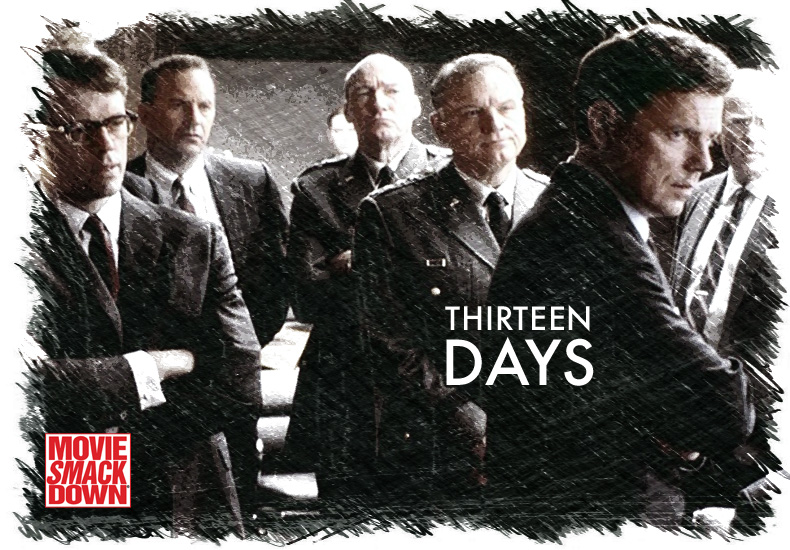


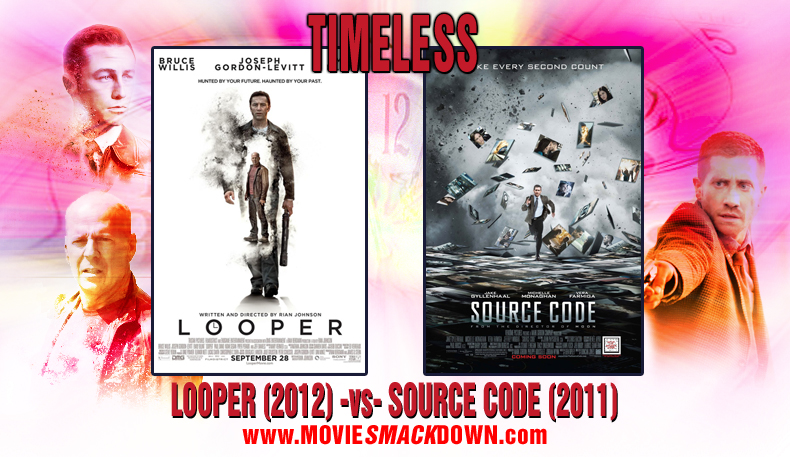
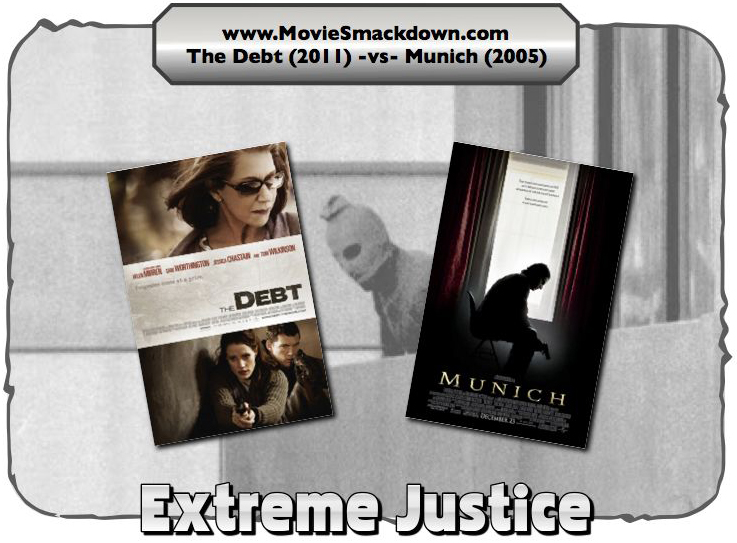
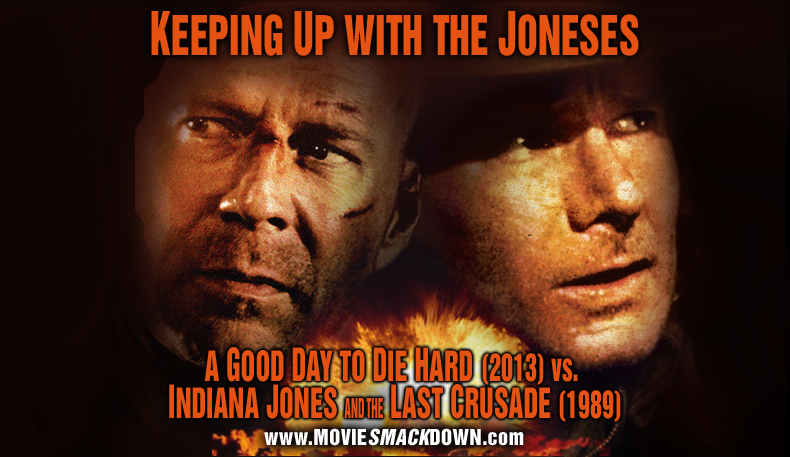
And I was proud to be in both.
Very cool, Dakin! Keep up the fine work!
Honor to have you here, sir. Loved your work in these films, and especially in True Grit!
Saw “Lincoln” last night and was duly impressed and disappointed. It felt like a Sandy Koufax 13 strikeout, 1 – 0 win when the Dodgers barely afforded him a run. It was all Koufax and the whole Dodger team reaped the reward. Only this time Daniel Day-Lewis was Koufax and Spielberg, Kushner , et al were the Team. At moments it was typical Masterpiece Theatre, other moments shards of brilliance danced in our eyes courtesy of Day-Lewis’ riveting portrait of Lincoln. I wanted to love this film, awash in the mastery of the political process by one of our most “political” presidents. But it was all too squared up for me, too perfectly placed and orderly. Nowhere near as chaotic, desparate, and stirring as it may very well have been at the time. The depth of Lincoln’s struggle to do what was right at all costs seemed well played out and filmed in respectful and easily understood tableaus of Congress, people and their times. Very much a history lesson and too little a human trial of gigantic proportions given the ultimate horror of slavery as we can only try to understand it. But for the gravitas of the Actor’s stillness and resolve, we would have not thought or felt the anguish of the moment or the triumph of the soul that April of 1865. Yes, the parallels to today and this recent election were more than evident and it was extremely wise NOT to release this film before Nov. 6. The Republicans who were so sorely bashed by the electorate may have been even more so given the similarities in the opinions, ethics and morality of people struggling in 1865 with a moral compass gone awry. In the end, LINCOLN was more an event to witness in a fever dream rather than a movie. As a film it might even be ordinary. As an event in our common history as human beings, it can be truly astonishing to witness through the eyes of a Giant made that way by his time and his unwavering belief that this time the end did justify the means. It should be seen by all, if not for its cinema legacy, certainly for its glimpse into the heart, soul and mind of a human being of extraordinary means who we all owe a tremendous depth of gratitude for showing us the way to be human in the greatest possible context. I will most likely see it again for that reason alone.
“Very much a history lesson and too little a human trial of gigantic proportions given the ultimate horror of slavery as we can only try to understand it.”
Very well said, Joe.
Let me get this straight. Costner’s performance in “THIRTEEN DAYS” is deemed lousy, due to his bad Boston accent? That is the extent of how you judged his performance?
Rosie –
Uhhh, no. Here’s what I said: “And even Costner’s performance is otherwise fine, but good God, that accent…”
Take away the accent, and it’s a good performance. It’s frankly a rather bland character, so we’re not talking Oscar-caliber stuff, but it serves its purpose, it’s FINE. But the accent is incredibly distracting, enough so to take you out of the moment of the scene, to make you overly aware that you’re watching an actor struggling with an accent, and failing. That’s no small thing.
And as I say in a previous comment, feel free to go to Youtube and see for yourself. You don’t have to watch past the first minute he’s on screen to see what I’m talking about.
A fun read, and interesting, too! Keep up the good work.
Lincoln. Not a perfect film, but a film that has many perfect moments within it.
Thirteen Days. Important but undermined by the sheer number of bad TV versions.
Lincoln Smacks Kennedy. 1860s Over 1960s.
One thing I wanted to add but didn’t have room is that “Thirteen Days” is available in its entirety for free on Youtube (yes, it’s legal). So if you just want to check out the accent for yourself, it’s there for you.